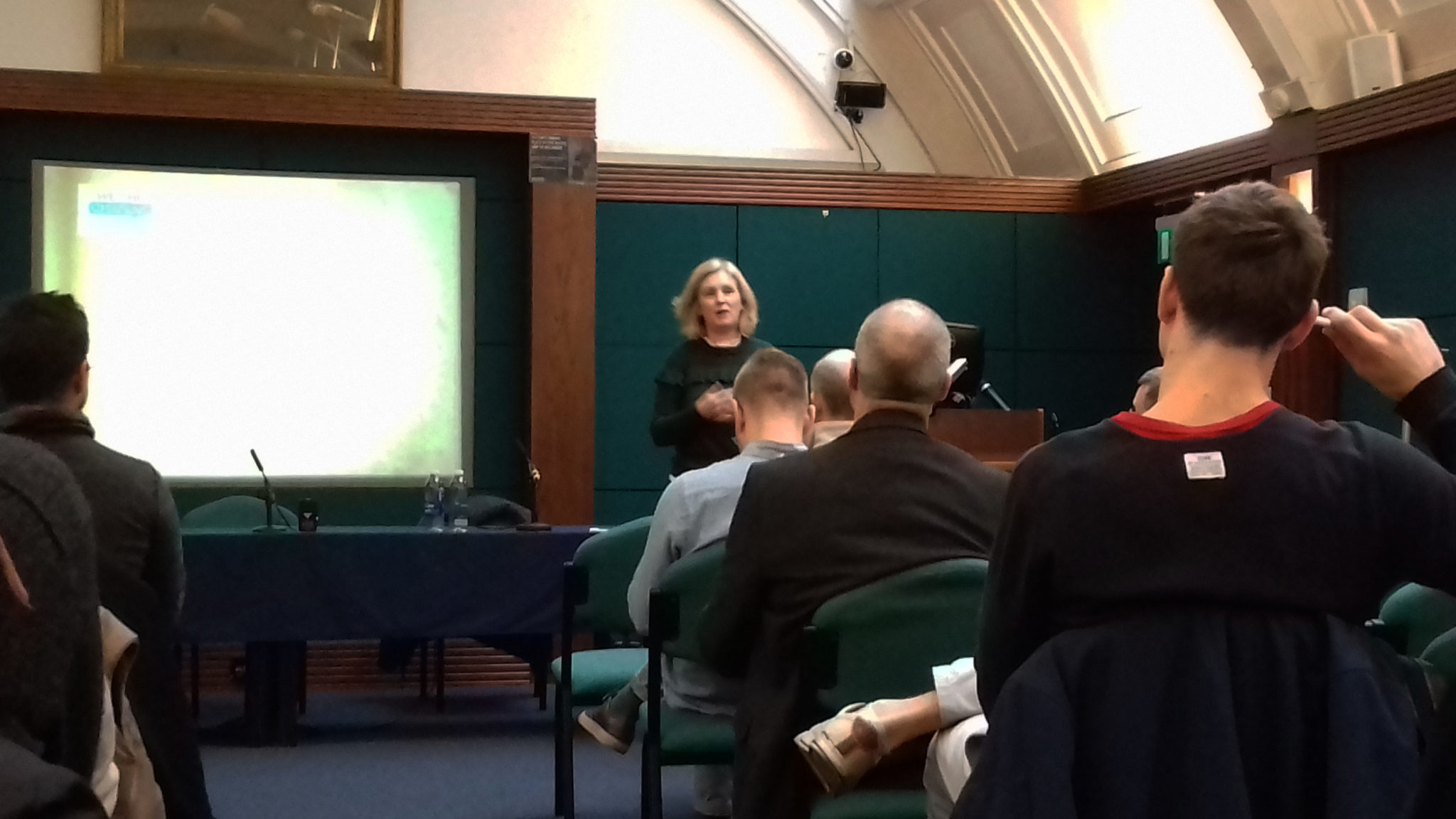Last weekend I took a trip to London to attend ‘Institutionalising Participatory and Deliberative Democracy’. The event was held by the Westminster Centre for the Study of Democracy, at the University of Westminster for academics, experts and the curious alike. It was a workshop-style event, with four key speakers and an opportunity for the audience to ask questions.
The session itself was exploring world-wide increased experimentation of new forms of public engagement that are participatory and/or deliberative in character. We looked at examples of participatory budgeting in Scotland and Latin America, Citizens’ Assemblies in Ireland and deliberative mini-publics across the globe. The range of speakers was brilliant: we started the session off with Graham Smith (Professor of Politics and Director of the Centre of the Study of Democracy) defining and introducing us to key topics of the afternoon. Looking specifically into Citizens’ Assemblies in Ireland was Clodagh Harris (Senior Lecturer in the Department of Government, Uni of Cork) followed by insight into Scotland’s participatory budgeting story with Oliver Escobar (Lecturer in Public Policy, Uni of Edinburgh).
We were initially introduced to the deliberative democratic form of mini-publics by Graham Smith. Mini-publics in represented democracy are groups of randomly selected citizens that are assumed to help define reasonable solutions to complex and diverse issues; this should discern a more reflective public opinion. An example would be The Citizen’s Initiative Review Commission, which was established by the Oregon Legislature in 2011. Randomly selected demographically-balanced voters were brought together from across the state to fairly evaluate ballot measures.
This led on to Clodagh Harris educating us on the trials and successes of Citizens’ Assemblies in Ireland. The pilot Irish Assembly, established in 2011, gave citizens a direct and formal role on matters of constitutional reform. As well as 33 politicians, this group included 66 randomly selected citizens. The inclusion of political representatives added to the process’ legitimacy, and meant for more parliamentary responsiveness. That political influence (from both houses of the Oireachtas and the Northern Ireland Assembly) was no doubt helpful towards the Government accepting recommendations for Constitutional Change; Harris focused on marriage equality, reducing the voting age and reducing the age you can become President.
The above led to two referendums in May 2015. The Presidential age referendum focused on lowering the age you can become president from 35 to 21; unsurprisingly, people felt that 21 was too young, with 73% of people voting that way. The Republic of Ireland is a primarily Christian country, with the largest church being Roman Catholic, meaning the referendum on marriage equality was monumental for the country. On the 22nd of May, the proposal resulted in nearly 2 million votes, with 62% of people voting ‘yes’ to marriage equality. This was a massive breakthrough for Ireland, and therefore a prime example of historical outcomes of Citizens’ Assemblies, and was the first time referendums passed successfully with mini-public. Evidently the pilot Citizens’ Assembly in Ireland went well, with the body still working today. Since October 2016, in the wave of the second generation, the Assembly have met regularly to deliberate outlined topics. The Assembly complete their work within a year and are currently considering how Ireland can tackle climate change, as well as the immense issue of abortion rights in Ireland. As it stands, abortion is illegal in Ireland, and therefore leads to hundreds of women travelling to England to carry out the procedure. The Citizens’ Assembly are trying to replace the current law, with a provision that makes termination of pregnancy up to the mother, not parliament.
Escobar’s talk explored participatory budgeting (PB), focussing on how Scotland have committed to making it normal practice in local and central government after COSLA and the Scottish Government made a landmark agreement to mainstream PB. Scotland is now famous for their extensive participatory budgeting after the Scottish Government first launched their Community Choices Fund in 2016. The fund supports PB in Scotland, by allocating a certain amount of the government budget to citizens. Escobar believes consultation should be done sparingly with a higher quality approach, focusing primarily on the bigger issues. Many local authorities in Scotland are using or have used Delib’s Dialogue tool, for the formative stages of their participatory budgeting challenges. The Scottish Government commissioned the Democratic Society to do a research project into participatory budgeting tools that are available.
Currently the Citizens’ Assembly England have a live project ‘Citizens’ Assembly on Brexit’, details of which can be found through their site. The amazing work of Citizens’ assemblies in Ireland and Participatory Budgeting in Scotland is an inspiration of what can be achieved by collective voices, as powers are being shifted away from Westminster towards devolved bodies and representatives at a local level.
